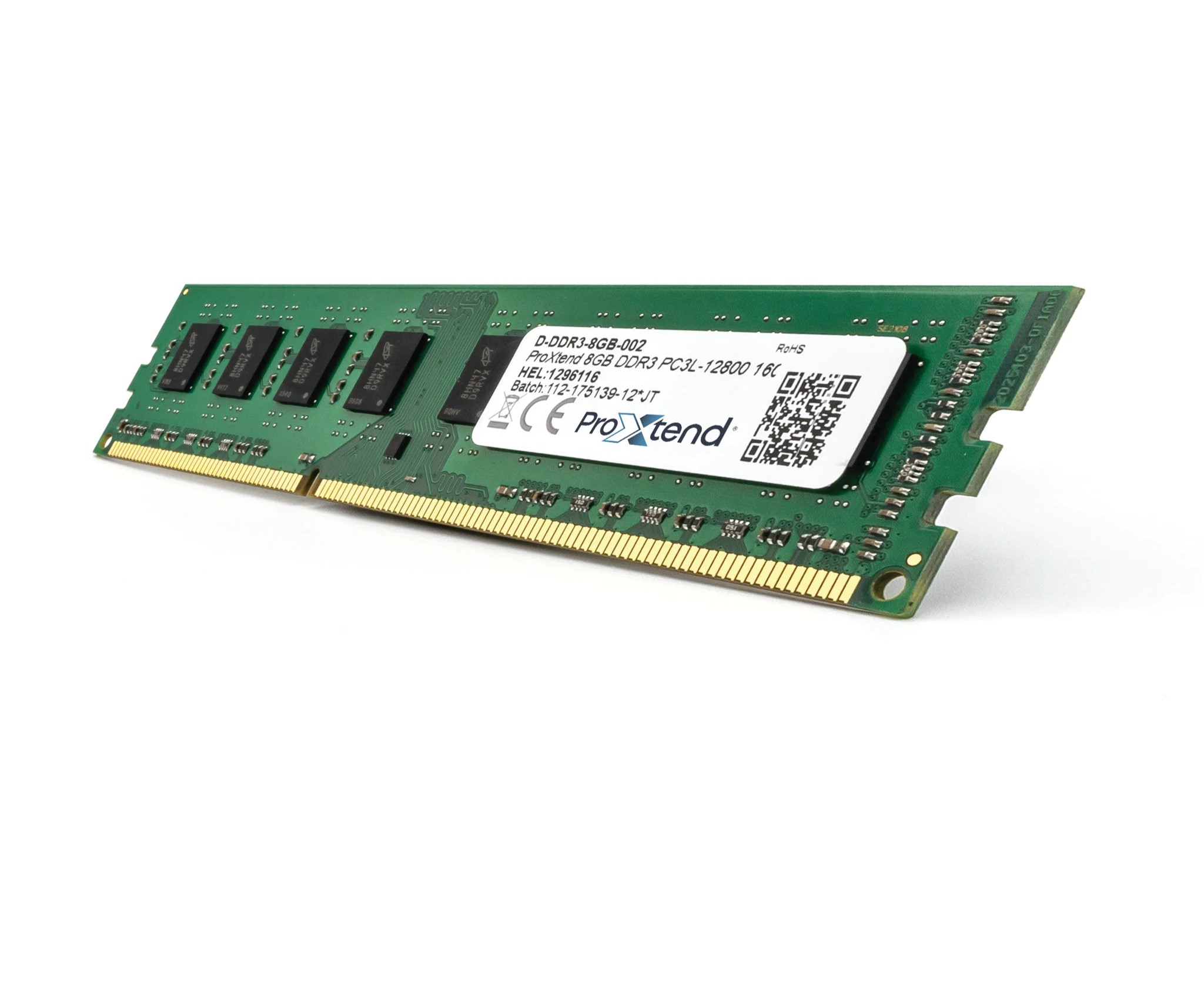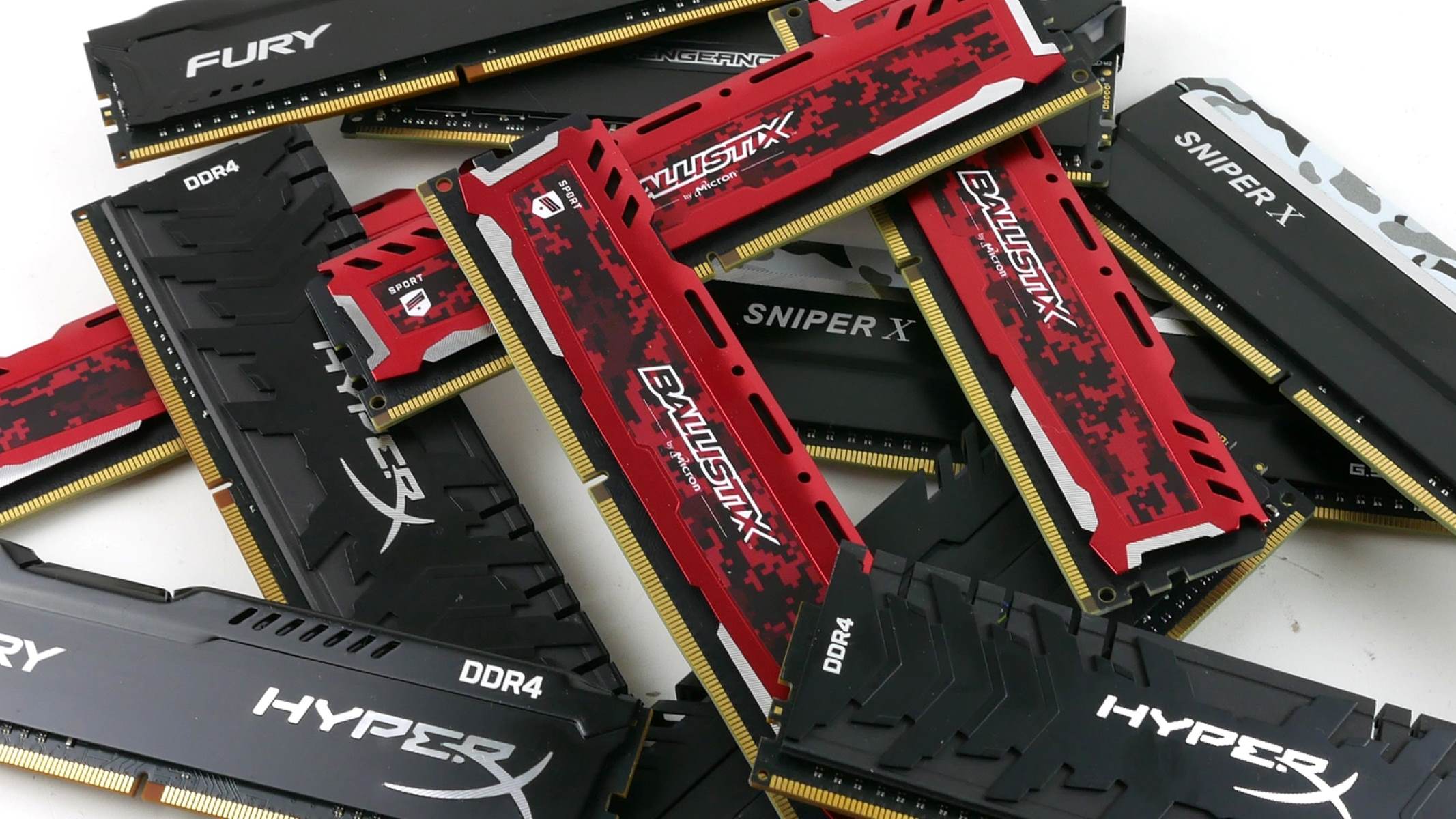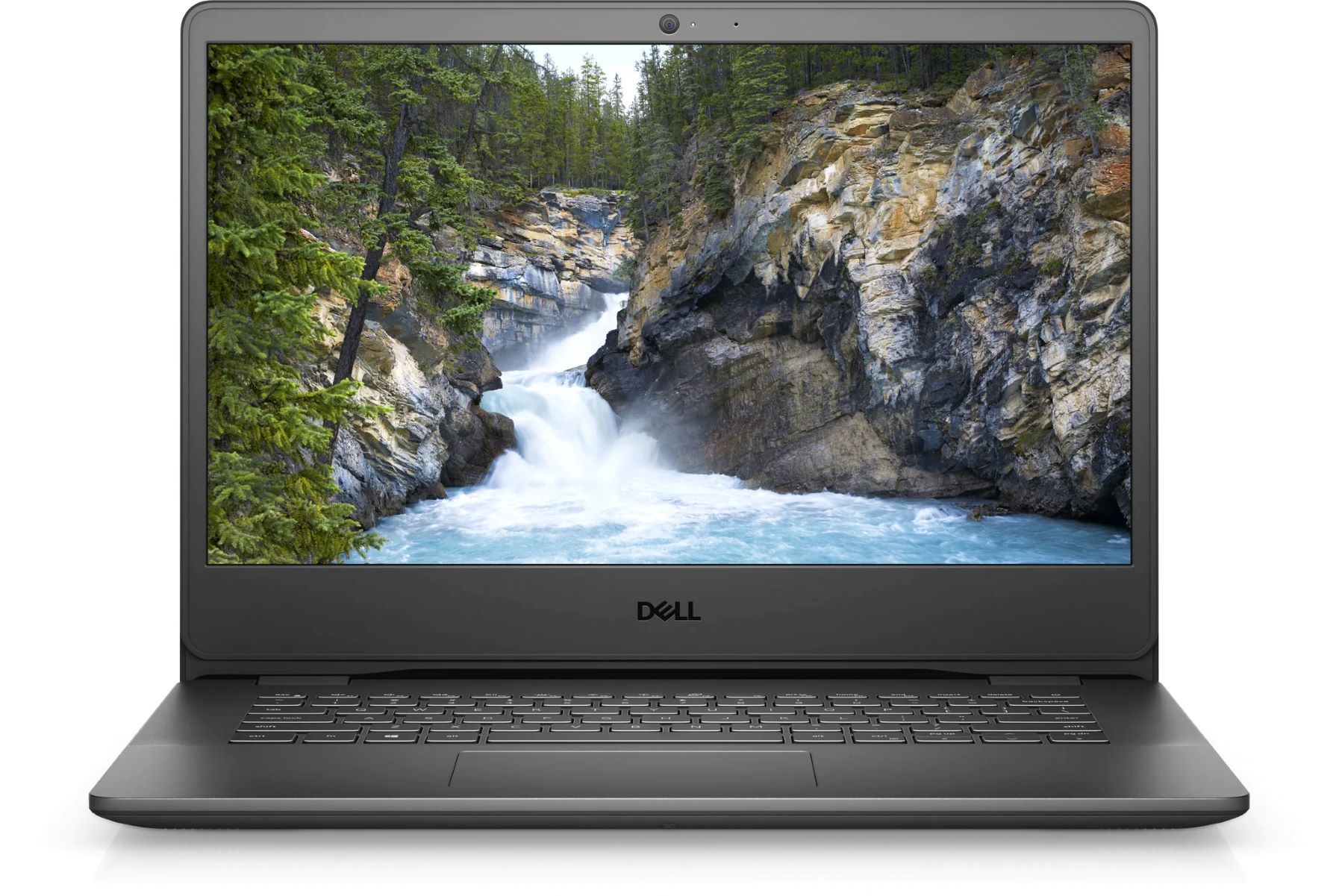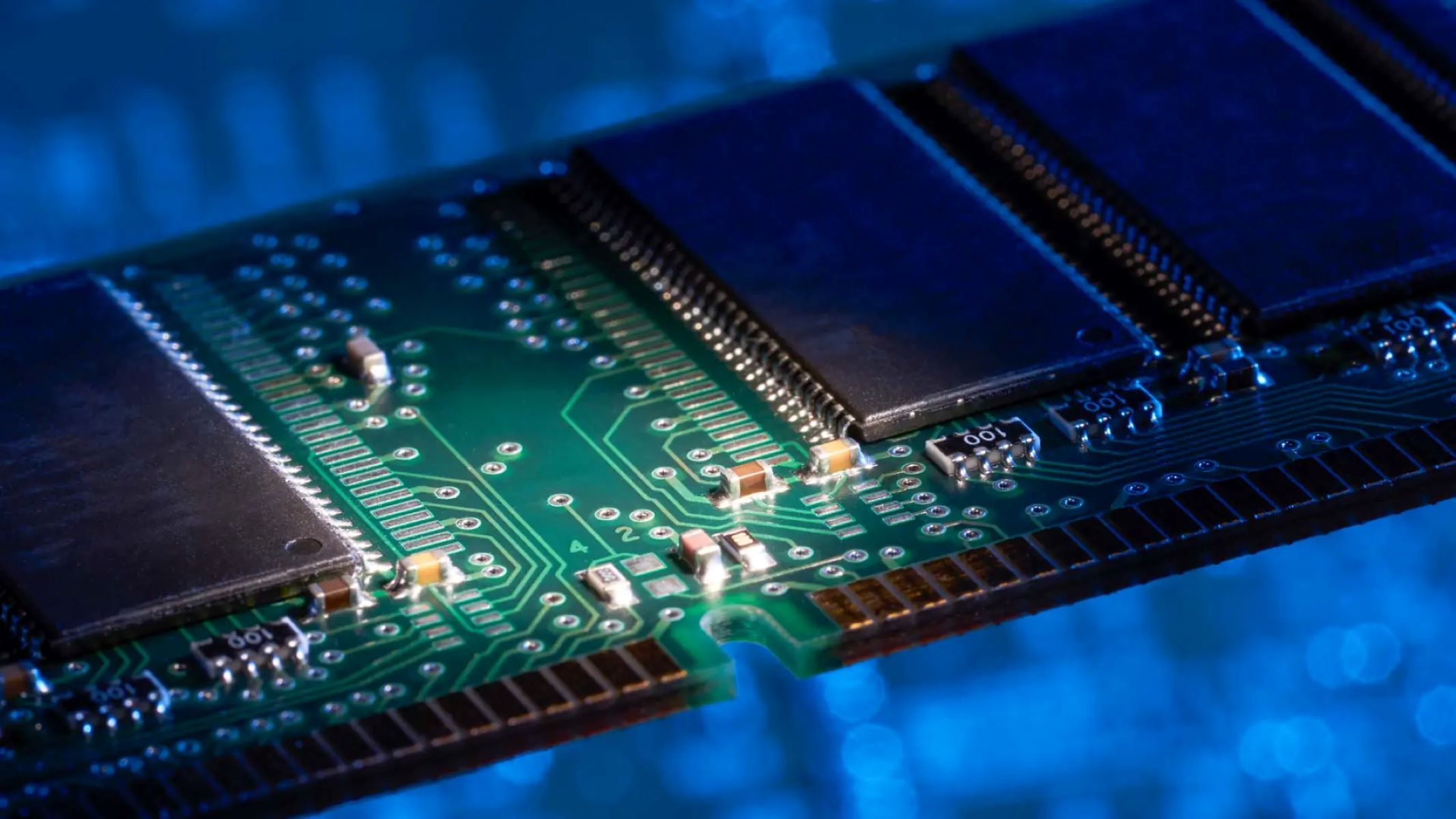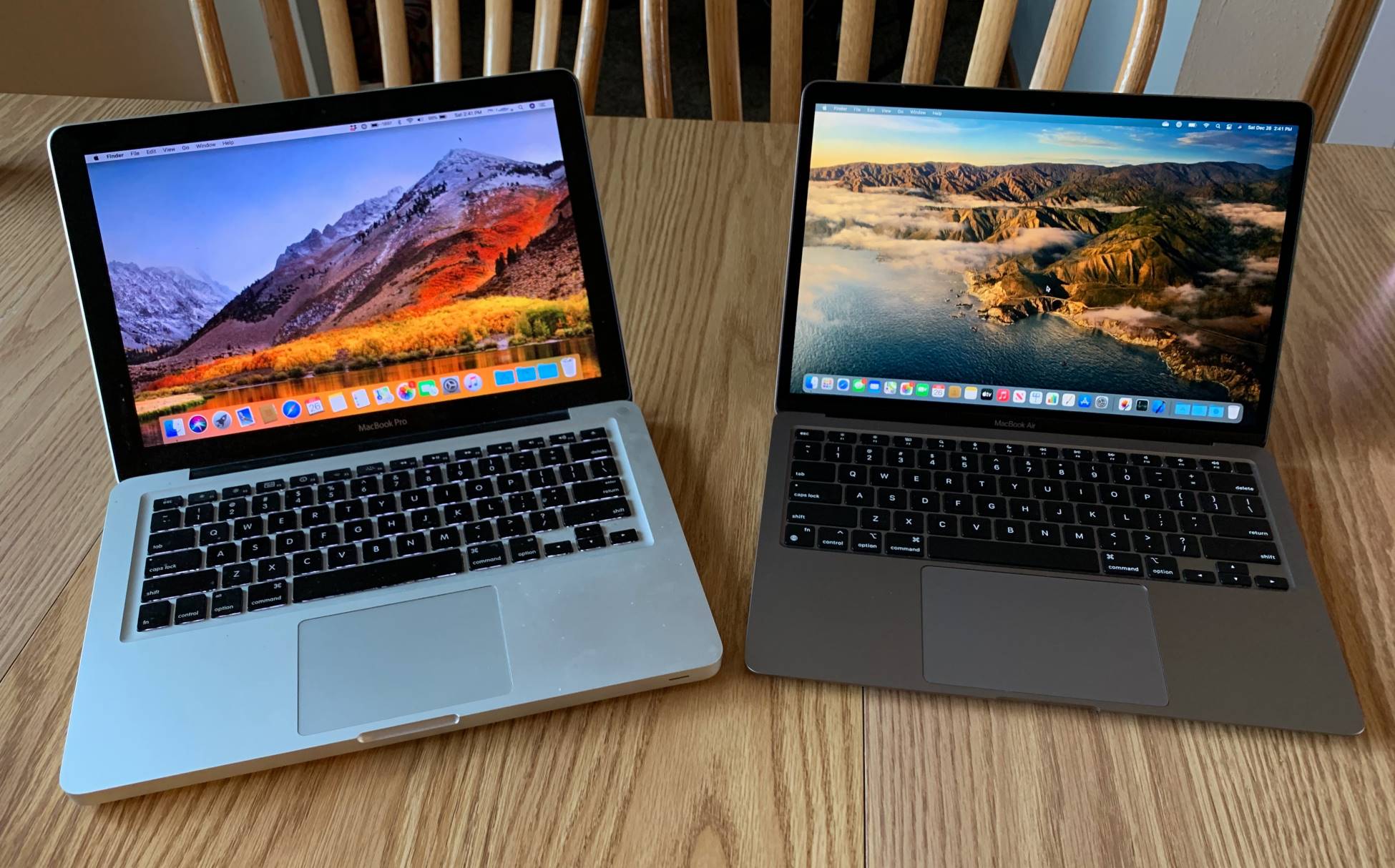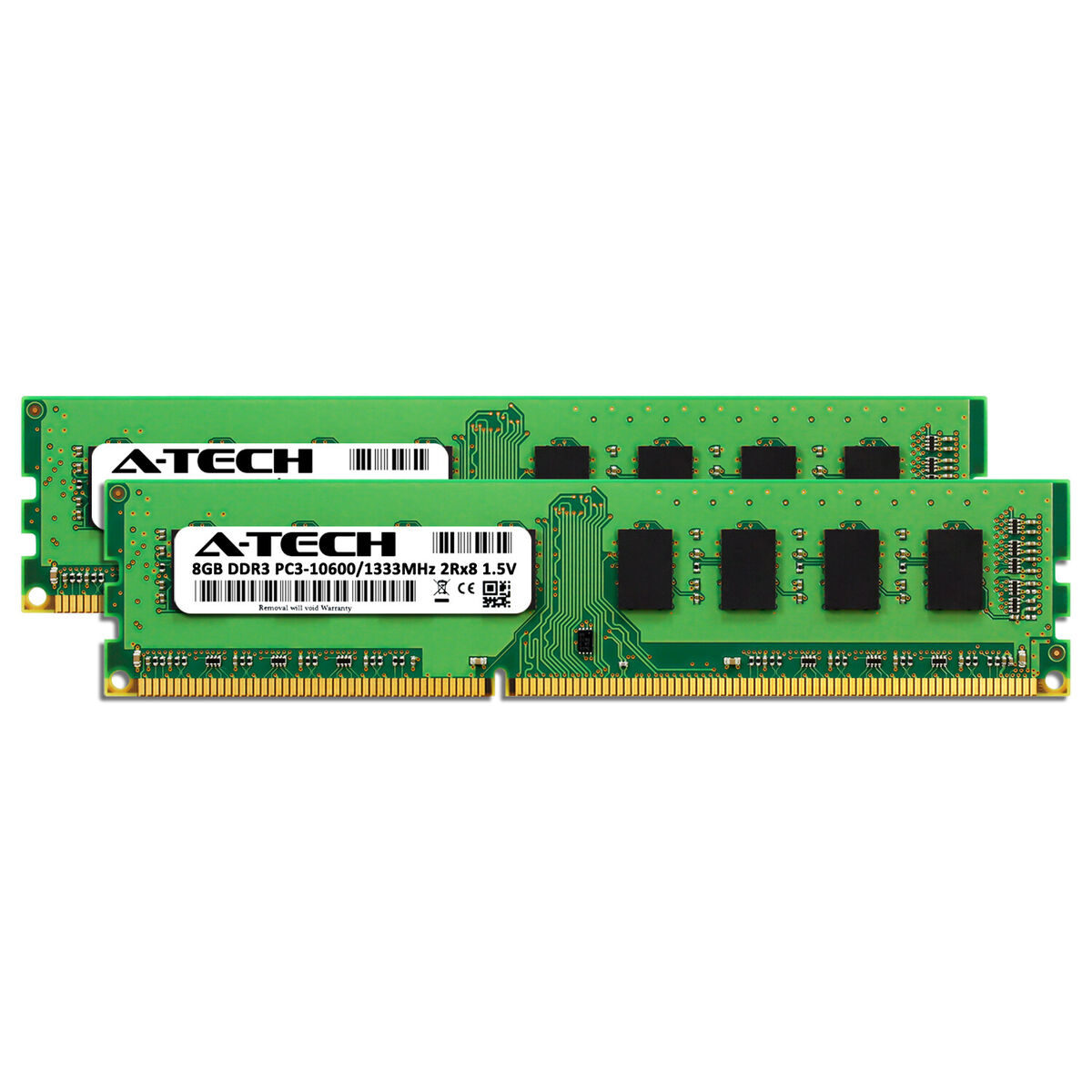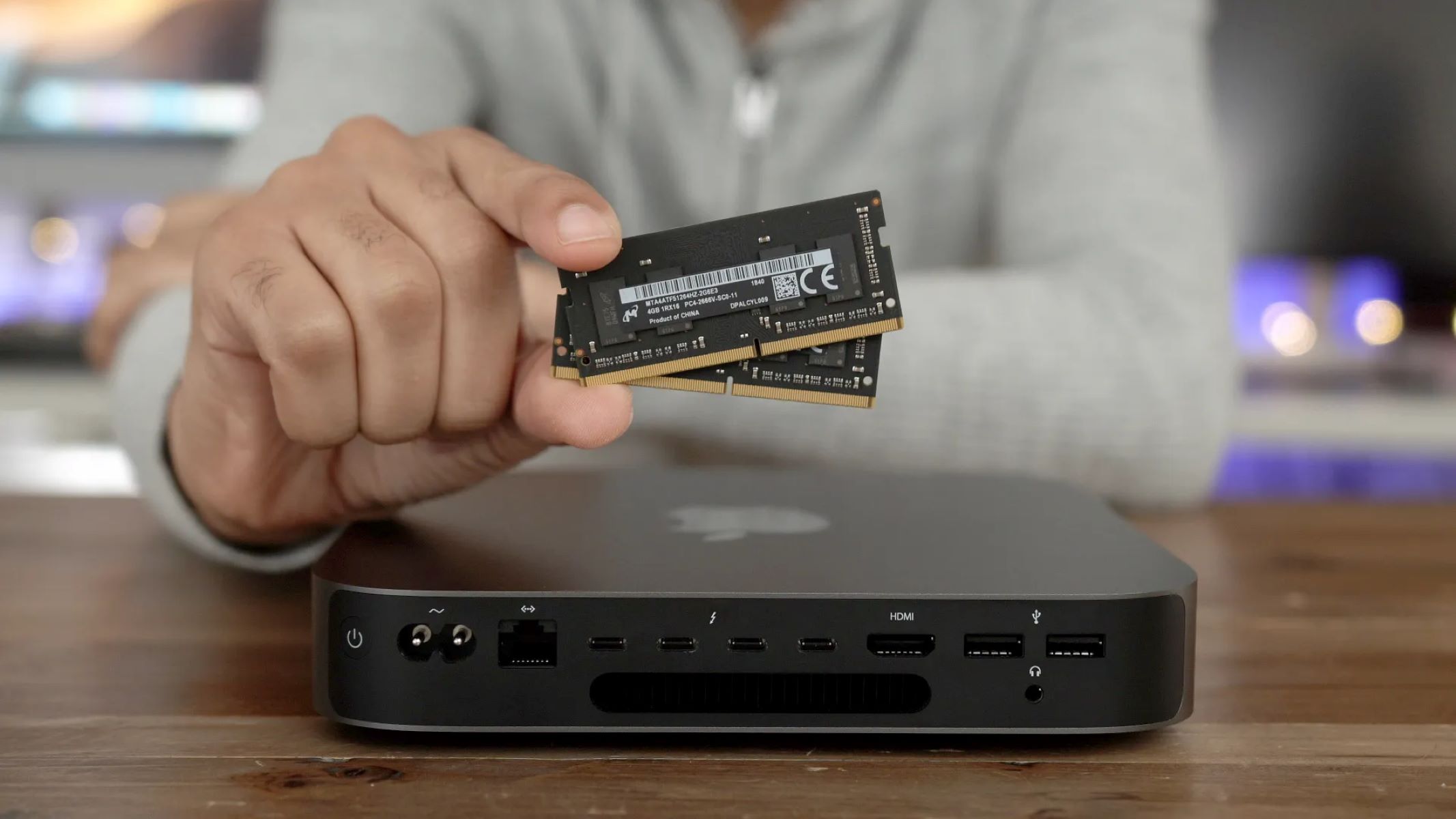Introduction
Welcome to our article on the topic of 8GB of RAM. In today’s technological landscape, RAM (Random Access Memory) has become a crucial component of any computing device, whether it’s a desktop computer, laptop, or even a smartphone. RAM plays an integral role in determining the performance and speed of a device, allowing for seamless multitasking and efficient handling of data. In this article, we will delve into the specifics of 8GB of RAM and its significance in the world of computing.
RAM acts as a temporary storage space for the data that an operating system and running applications need to access quickly. Unlike the long-term storage provided by a hard drive or solid-state drive, RAM stores data that is actively being used by the processor, ensuring swift and responsive operations. The more RAM a device has, the more data it can store and access without having to rely on slower forms of storage.
Now let’s focus on the topic at hand: 8GB of RAM. When we refer to 8GB of RAM, it means that the device has 8 gigabytes of memory available for use. For many users, 8GB of RAM is considered a standard and adequate amount for everyday computing tasks. However, it’s important to note that the specific requirements may vary depending on the type of device and the intended usage.
In the following sections, we will explore the benefits of having 8GB of RAM, how it can impact performance, and considerations for upgrading your device’s RAM. So without further ado, let’s dive into the world of 8GB of RAM and discover why it is an essential aspect of modern computing.
RAM Explained
Before we delve into the specifics of 8GB of RAM, let’s gain a clear understanding of what RAM is and how it works. RAM, or Random Access Memory, is a type of computer memory that allows the CPU (Central Processing Unit) to quickly access and retrieve data. Unlike long-term storage options like hard drives or SSDs (Solid-State Drives), RAM is volatile memory, meaning that it requires a constant flow of electricity to retain data.
RAM serves as a temporary workspace for the operating system, applications, and files that are currently in use. When you open an application or start a task on your computer, the relevant data is loaded into the RAM, allowing the CPU to access it quickly. This enables swift multitasking and smooth performance, as the CPU can retrieve data from RAM much faster than from a hard drive or SSD.
RAM is organized into individual memory cells, each capable of storing and retrieving a fixed amount of data. These cells are arranged in a grid, with each row and column identified by a unique address. When the CPU needs to access data stored in RAM, it sends a memory address to the RAM controller, which then retrieves the relevant data from the corresponding memory cell.
The size of RAM is typically measured in gigabytes (GB). The more gigabytes of RAM a computer has, the more data it can store and access quickly. This translates to improved performance and the ability to handle more demanding tasks, such as running multiple applications simultaneously, editing large multimedia files, or playing graphically intensive games.
It’s important to note that RAM is different from storage devices like hard drives or SSDs. While RAM provides temporary storage for data that is actively being used, these storage devices offer long-term storage for files and programs even when the computer is turned off.
Now that we have a clear understanding of what RAM is and its role in a computer system, let’s turn our attention to the specific configuration of 8GB of RAM and the benefits it provides.
What is 8GB of RAM?
When we refer to 8GB of RAM, it means that the computer or device has 8 gigabytes of memory available for use. This amount of RAM is considered to be a standard and adequate configuration for many users’ computing needs.
With 8GB of RAM, your computer can efficiently handle everyday tasks such as web browsing, word processing, video streaming, and light gaming. It provides enough memory capacity to run multiple applications simultaneously without experiencing significant performance slowdowns. For example, you can have a web browser open with multiple tabs, while also running a productivity application and listening to music without experiencing noticeable lag.
8GB of RAM also provides ample memory for multimedia tasks such as photo and video editing. With sufficient RAM, your computer can store and process large files more quickly, allowing you to work smoothly with high-resolution images or edit and render videos without frustrating delays.
In addition to everyday tasks, 8GB of RAM is adequate for casual gaming. While it may not support the highest graphical settings on the latest AAA games, it can handle most mainstream titles smoothly. You can enjoy a multitude of popular games without encountering significant performance issues or frequent frame rate drops.
It’s important to note that the required RAM for specific tasks will vary depending on their complexity and the software’s resource demands. For more resource-intensive applications like video editing, 3D rendering, or virtual machines, upgrading to higher amounts of RAM, such as 16GB or 32GB, may be beneficial to ensure smoother performance and faster processing times.
Furthermore, the type of RAM and its speed can also affect performance. DDR4 is the current standard for RAM, offering faster data transfer rates compared to DDR3. It’s advisable to check your computer’s compatibility and specifications before upgrading or purchasing additional RAM.
In the next section, we will explore the various benefits of having 8GB of RAM and how it can enhance your computing experience.
Benefits of 8GB RAM
Having 8GB of RAM in your computer or device comes with several notable benefits that can greatly enhance your computing experience.
1. Improved Multitasking: With 8GB of RAM, you can efficiently handle multitasking scenarios where you need to run multiple applications simultaneously. Whether it’s switching between different apps, working on multiple projects at once, or running virtual machines, 8GB of RAM provides sufficient memory capacity to keep everything running smoothly.
2. Faster Performance: More RAM allows your computer to store a larger amount of data that is actively being used. This enables faster retrieval of data, resulting in snappier performance across the board. Applications will launch quicker, files will load faster, and you’ll experience smoother overall system responsiveness.
3. Seamless Web Browsing: Web browsers have become more resource-intensive, especially when you have multiple tabs open and are running web applications. With 8GB of RAM, your browser can handle numerous tabs and web-based tools without slowing down, ensuring a seamless browsing experience.
4. Enhanced Multimedia Performance: 8GB of RAM is sufficient for handling multimedia tasks such as photo and video editing. You’ll be able to work with large files more efficiently, see real-time changes without lag, and experience faster rendering and exporting times when working on complex projects.
5. Smoother Gaming Experience: While 8GB of RAM may not support the highest graphical settings in the most demanding games, it can still provide a smooth gaming experience for most mainstream titles. You’ll be able to play games with moderate graphics requirements without experiencing significant performance issues or frequent frame rate drops.
6. Future-Proofing: As technology advances, software and operating systems tend to become more resource-intensive. By having 8GB of RAM, you’re positioning yourself well for the future. It ensures that your system can meet the demands of upcoming software updates and newer applications without becoming outdated too quickly.
7. Cost-Effective: 8GB of RAM strikes a balance between performance and cost-effectiveness. It provides ample memory for everyday computing tasks, multimedia editing, and light gaming, without the need for an expensive upgrade to higher RAM configurations that may not be necessary for the average user.
Whether you’re a student, a professional, or a casual computer user, 8GB of RAM offers significant benefits that can contribute to a smoother, more efficient computing experience.
In the next section, we’ll explore how the performance of a device can be impacted by the amount of RAM it has.
Performance Impact of 8GB RAM
The amount of RAM in a computer has a direct impact on its overall performance. Having 8GB of RAM can significantly enhance the performance of your device in several ways.
1. Faster Application Loading: With 8GB of RAM, applications can be loaded into memory quickly, allowing them to launch faster. This means you’ll spend less time waiting for software to open and more time getting things done.
2. Improved Multi-Tasking: 8GB of RAM allows you to run multiple applications simultaneously without experiencing significant performance slowdowns. You’ll be able to switch between different tasks seamlessly, increasing productivity and efficiency.
3. Reduced Page File Usage: Page file refers to the space on your hard drive or SSD that is used as virtual memory when your RAM is fully utilized. With 8GB of RAM, there is ample memory to store data, reducing the need for the operating system to rely heavily on the page file. This leads to improved system performance and responsiveness.
4. Smooth Multimedia Performance: Whether you’re editing photos, videos, or working with other graphically intensive tasks, 8GB of RAM ensures smoother performance. It provides sufficient memory capacity for applications to store and process large files, resulting in faster rendering times and a more efficient workflow.
5. Enhanced Gaming Experience: 8GB of RAM can contribute to a better gaming experience by allowing games to run smoothly. It provides enough memory to handle the game’s requirements without causing significant slowdowns or stuttering. While high-end, graphically demanding games may require more RAM for optimal performance, 8GB is often adequate for most mainstream titles.
6. Quicker File Access: RAM is much faster than traditional storage devices like hard drives or SSDs. With 8GB of RAM, your computer can store more data in memory, resulting in faster access times for frequently used files and applications. This translates to quicker file transfers and a more responsive user experience.
7. Efficient Virtual Machine Performance: Running virtual machines requires a significant amount of resources, including RAM. With 8GB of RAM, you can run virtual machines smoothly while still having enough memory for your host operating system and other applications.
It’s important to note that while 8GB of RAM provides substantial performance benefits, there may be specific use cases where more RAM is beneficial. Resource-intensive tasks like professional video editing, 3D modeling, or running multiple virtual machines may require higher amounts of RAM for optimal performance.
In the next section, we’ll delve into important considerations when upgrading your device’s RAM.
RAM Upgrade Considerations
If you’re considering upgrading the RAM in your computer or device, there are several important factors to consider before making a decision.
1. Compatibility: Before purchasing new RAM modules, it’s crucial to ensure compatibility with your device. Check the specifications and documentation of your computer or motherboard to determine the type, speed, and maximum capacity of RAM supported. Additionally, consider factors such as voltage requirements and whether your system supports dual channel or quad channel memory configurations.
2. Operating System and Software Requirements: Different operating systems and software have specific memory requirements. Check the minimum and recommended RAM specifications for your operating system and the applications you frequently use. This will help you determine the amount of RAM you need to ensure optimal performance and compatibility with your software ecosystem.
3. Usage Intensity: Assess your typical usage patterns and consider the intensity of your computing tasks. If you frequently work with resource-intensive applications like video editing, graphic design, or 3D rendering, you may benefit from upgrading to a higher amount of RAM, such as 16GB or 32GB. However, for everyday tasks and casual use, 8GB of RAM is often sufficient.
4. Budget: Consider your budget when deciding on a RAM upgrade. RAM prices can vary depending on factors such as capacity, speed, and brand. Evaluate your needs, usage requirements, and future plans for your device to determine the most cost-effective option. Remember that investing in more RAM than necessary may not always provide a significant performance boost for the average user.
5. Future-Proofing: Technology evolves at a rapid pace, and software demands may increase over time. To ensure longevity and avoid frequent upgrades, consider opting for a higher RAM capacity, especially if you plan to keep your device for an extended period. This will help future-proof your system and provide headroom for potential advancements in software and multitasking capabilities.
6. Mixing RAM Modules: If you decide to add additional RAM modules to your existing ones, ensure compatibility with the existing modules. Mixing different brands or speeds may work, but it’s generally recommended to use identical or similar RAM modules for optimal performance and stability. Consult your device’s documentation or motherboard manual for specific guidelines on mixing RAM modules.
7. Installation: Upgrading RAM requires physically installing the new modules into your computer or device. If you’re not experienced with hardware installation, it may be advisable to seek professional assistance. Ensure proper handling of the RAM modules, following anti-static measures, and refer to the device’s documentation for installation guidelines.
By considering these factors, you can make an informed decision when upgrading your device’s RAM, ensuring compatibility, optimal performance, and value for your investment.
Now that we’ve explored the various considerations for upgrading RAM, let’s summarize the key points discussed in this article.
Conclusion
In this article, we have explored the world of 8GB of RAM and its significance in modern computing. RAM, or Random Access Memory, plays a vital role in the performance and speed of a computer or device, allowing for seamless multitasking and efficient data handling.
We learned that 8GB of RAM is considered a standard configuration for many users, providing ample memory capacity for everyday computing tasks, multimedia editing, and light gaming. With 8GB of RAM, you can experience improved multitasking, faster application loading times, and smoother overall system performance.
We also discussed the benefits of having 8GB of RAM, including improved multitasking, faster performance, seamless web browsing, enhanced multimedia capabilities, and a smoother gaming experience. Additionally, we touched on the performance impact of 8GB of RAM, highlighting its role in faster file access, reduced page file usage, and efficient virtual machine performance.
When considering a RAM upgrade, we explored important factors such as compatibility, operating system requirements, usage intensity, budget, future-proofing, and the considerations for mixing RAM modules. These factors should be carefully evaluated to make an informed decision that suits your specific needs and ensures optimal performance for your device.
In conclusion, 8GB of RAM offers a balance between performance and cost-effectiveness, providing substantial benefits for most users’ computing requirements. However, it’s important to assess the unique needs of your device, your usage patterns, and potential future demands to determine the appropriate RAM configuration for your specific situation.
Ultimately, upgrading your device’s RAM can unlock the full potential of your computer, allowing you to enjoy faster speeds, improved multitasking capabilities, and an overall smoother computing experience.









